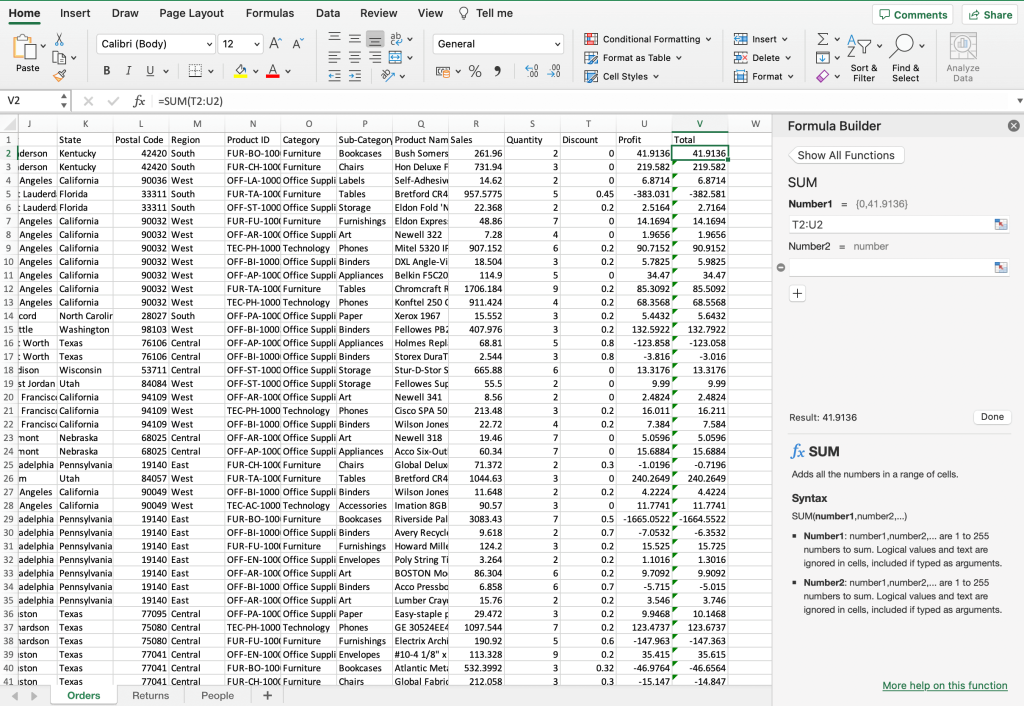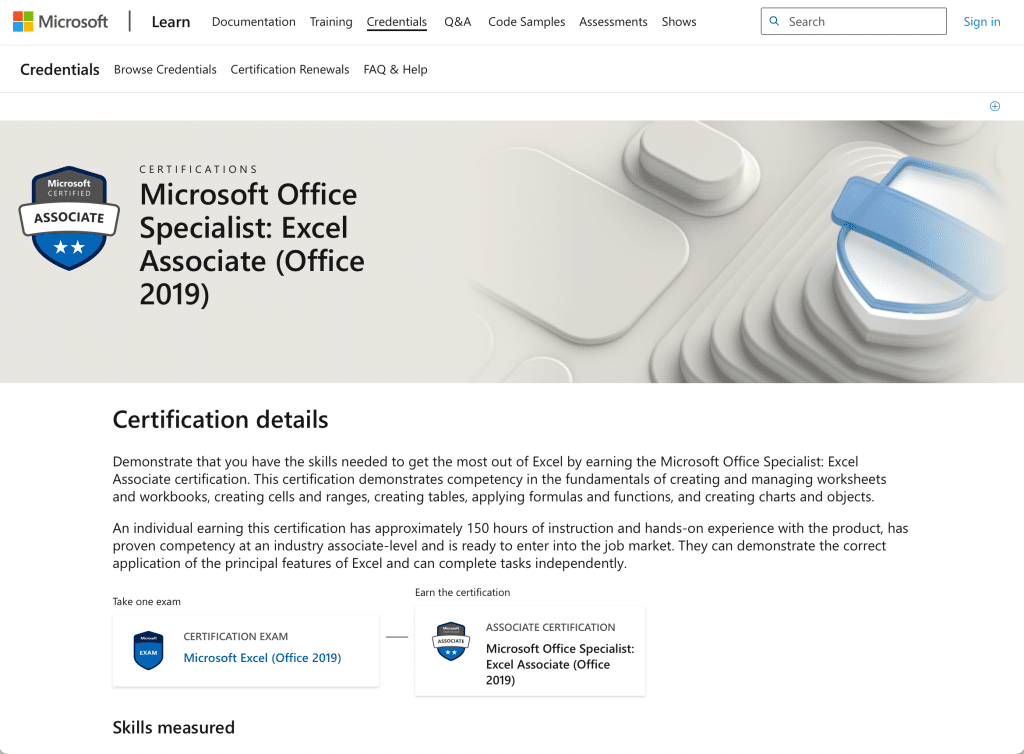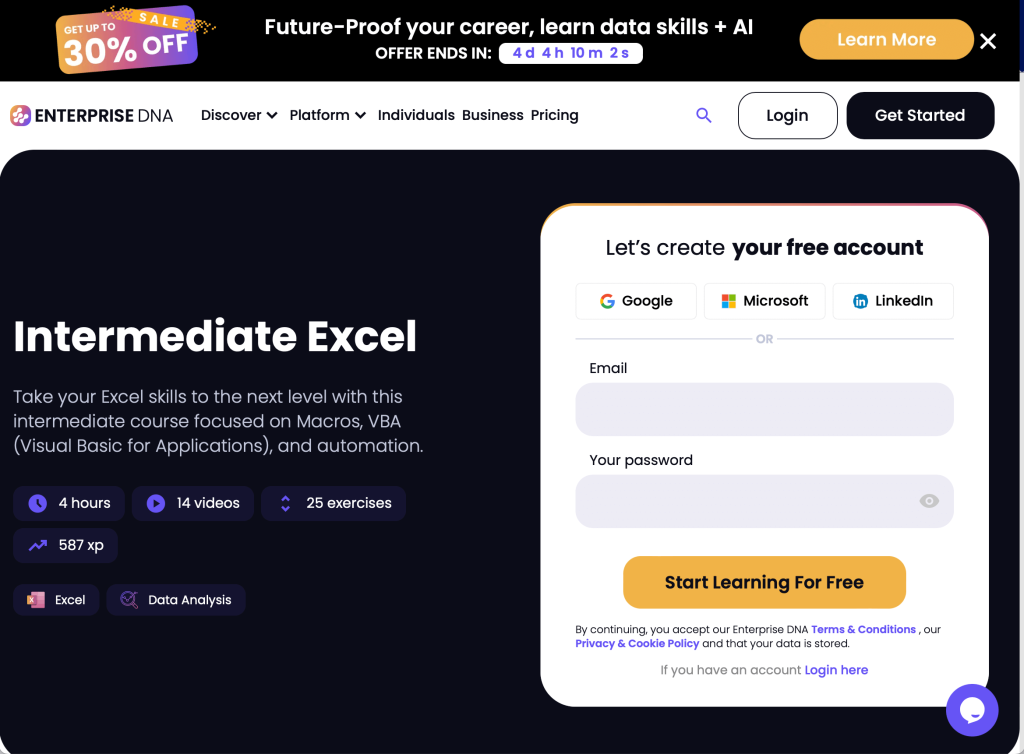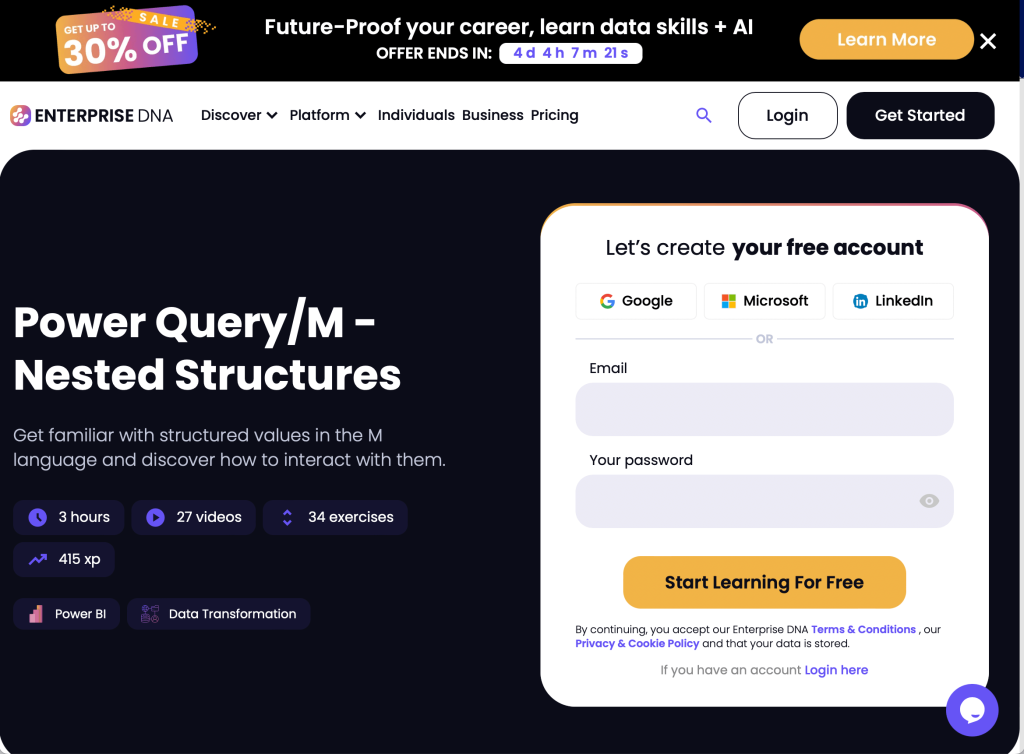In today’s competitive job market, having a solid understanding of Microsoft Excel is increasingly valued by employers across industries.
Proficiency in Excel can not only increase your productivity but also help you gain a competitive edge over other candidates when seeking new job opportunities.
So, what specific Excel skills are employers looking for?
From basic functions to advanced techniques, employees are expected to possess a wide range of skills in Microsoft Excel. Employers are particularly interested in candidates who can demonstrate proficiency in basic Excel functions, such as SUM, AVERAGE, MIN, MAX, COUNT, and IF. Alongside these essential functions, knowledge of conditional formatting, data validation, and cell formatting is highly sought after by employers.
As you work to enhance your Excel expertise, it is vital to focus on the skills that are most relevant to your industry and job role.
By honing these vital skills and showcasing them on your resume, you are setting yourself up for success in the modern workforce.
Let us explain!

Why Are Employers Looking for Excel Skills?
In today’s fast-paced business environment, Excel skills are more critical than ever.
As an employee, having a strong grasp of Excel can empower you to manage data, make informed decisions, and communicate information more effectively.
Employers are often on the hunt for job candidates with Excel skills for several important reasons:
Efficiency: Excel can help employees work faster and more efficiently. It automates tasks and calculations, saving time and reducing the chances of errors. This efficiency can lead to increased productivity.
Data Handling: In the digital age, data is everywhere. Employers need people who can manage and make sense of data. Excel’s data-handling capabilities are invaluable for this purpose. It allows businesses to organize, analyze, and interpret data.

Informed Decision-Making: Excel’s ability to create charts and graphs from data helps in making informed decisions. Employers value this skill because it can lead to smarter choices and better outcomes for the business.
Reporting: Businesses often need to present information in a clear and organized manner. Excel is a versatile tool for creating reports and presentations. Employees who can do this well are highly sought after.
Problem Solving: Excel’s formulas and functions make it a problem-solving powerhouse. Employers want employees who can use these tools to address complex challenges, whether it’s financial analysis or resource allocation.
Now, let’s take a more in-depth look at these skills.
Excel Skills Employers Are Looking For

Excel skills are often categorized into three main levels, each representing a different degree of proficiency:
1. Basic Excel Skills

Basic Excel Skills are the foundation of every user’s journey with this tool.
Here is a list of basic skills you should master:
Navigating Excel: You can create, save, and open a workbook.
Data Entry: You can enter data into cells, and apply basic formatting, such as changing font styles and colors.
Simple Formulas: You can perform basic calculations like addition, subtraction, multiplication, and division using simple formulas like SUM, AVERAGE, MIN, MAX, COUNT, and IF.
Cell Formatting: You can format cells to adjust their alignment, borders, and background color.
Once you are comfortable with basic skills, it is time to move ahead and develop your intermediate skills.
2. Intermediate Excel Skills

This level includes skills that enable you to work more efficiently and effectively with larger datasets and more complex tasks.
Some intermediate skills to develop include:
Data Manipulation: Intermediate Excel users are adept at sorting and filtering data, which helps in organizing and analyzing information effectively.
Functions: You can use a variety of Excel functions, such as VLOOKUP, COUNTIF, SUMIF, and IFERROR, to perform more complex calculations and data analysis.
Charts and Graphs: Intermediate users can create and customize charts and graphs to visually represent data.
Pivot Tables: You can work with PivotTables to summarize and analyze large datasets efficiently.
3. Advanced Excel Skills

Finally, more advanced Excel skills will set you apart as a true Excel expert.
Advanced Excel skills employers are looking for include:
Complex Formulas: Advanced Excel users are skilled at creating complex formulas and performing intricate calculations for in-depth data analysis.
Macros and Automation: You can write and use VBA (Visual Basic for Applications) macros to automate tasks and customize Excel’s functionality.
Data Modeling: Advanced users can use tools like Power Query and Power Pivot for advanced data modeling and transformation.
Collaboration and Integration: You are proficient in sharing workbooks and integrating Excel with other applications, such as SharePoint and SQL databases.
By developing a strong understanding of basic, intermediate, and advanced Excel skills, you will enhance your proficiency in Microsoft Excel and boost your value in your career.
Remember that learning and improvement are continuous processes, so keep honing your skills to stay ahead in today’s competitive job market.
Now, let’s look at different roles and how the Excel skills you need change depending on what you do.
Excel Skills Highly Sought After in Different Professions

Excel proficiency is not limited to a specific industry or job role; it is a versatile skill that is highly sought after in various professions.
Here are some examples of how Excel skills are valued in different fields:
Finance and Accounting
Excel is the backbone of financial analysis. Professionals in finance and accounting rely on Excel for tasks like budgeting, financial modeling, and creating complex spreadsheets for tracking expenses and revenue.
Marketing and Sales
Marketers use Excel to analyze customer data, track campaign performance, and manage leads. Sales teams utilize Excel for forecasting, managing sales pipelines, and generating sales reports.

Human Resources
HR professionals use Excel for workforce planning, employee data management, and payroll calculations. It helps in organizing and tracking employee information effectively.
Project Management
Project managers rely on Excel for creating Gantt charts, task lists, and project timelines. Excel’s ability to calculate project costs and monitor progress is invaluable in this field.

Data Analysis and Research
Data analysts and researchers use Excel to clean and manipulate data sets, perform statistical data analytics, and create visual representations of data through charts and graphs.
Education
Educators and students use Excel for academic purposes. It aids in data analysis for research projects, simplifies grading through built-in formulas, and helps create interactive learning materials.

Healthcare
Excel is employed for managing patient records, analyzing medical data, and optimizing healthcare processes. It assists healthcare professionals in making informed decisions.
In summary, Excel is a versatile tool with applications spanning across numerous professions. Regardless of your career path, developing Excel skills can enhance your efficiency, decision-making, and overall performance. It’s a valuable asset that can open doors and help you excel in various professional fields.
Highlighting Excel Skills on Your Resume

As you craft your resume, it’s crucial to highlight the Excel knowledge and skills that employers are seeking. By showcasing your proficiency in using Excel for data analysis and various other tasks, you’ll demonstrate your capabilities as a valuable employee.
Also, byIncluding your Excel expertise on your resume can make you a more attractive candidate to potential employers.
Here are some tips on how to effectively highlight your Excel abilities:
Create a Skills Section: Dedicate a specific section of your resume to showcase your technical skills, including Excel. Use a clear and concise title, such as “Technical Skills” or “Software Proficiency.”
Be Specific: Don’t just mention “proficient in Excel.” Be specific about the Excel features or functions you are comfortable with. For example, you can say “Advanced Excel skills, including PivotTables, VLOOKUP, and complex formula creation.”
Use Keywords: Tailor your resume to the job you’re applying for by including Excel-related keywords from the job description. This can help your resume get noticed by applicant tracking systems (ATS) that scan for relevant skills.
Show Achievements: Quantify your achievements related to Excel. For example, “Implemented a new Excel-based reporting system that reduced data processing time by 30%.”

Certifications: If you have taken Excel courses or earned certifications, include them on your resume. Certifications, such as Microsoft Office Specialist (MOS) or Microsoft Certified: Excel Expert, can validate your skills.
Education and Training: Mention any formal education or training related to Excel, especially if it’s directly relevant to the job you’re applying for.
Customize for Each Job Application: Tailor your resume for each job application by highlighting the Excel skills and experiences most relevant to the specific job requirements.
Cover Letter: Consider mentioning your Excel expertise in your cover letter to reinforce your proficiency and its relevance to the position.
By effectively showcasing your Excel skills on your resume, you can increase your chances of standing out to potential employers who value this valuable skillset in today’s competitive job market.
Improving Excel Proficiency Through Training and Courses

Investing in Excel training can help you and your employees develop advanced skills for data analysis and manipulation. Alongside that, it can enhance your proficiency in Microsoft Office, making it an essential asset for your team’s growth.
When you choose to undergo Excel training, consider exploring different options such as online courses. These courses provide flexibility so you can learn at your own pace and access various resources on improving your Excel abilities.
To leverage Microsoft Office skills, arrange them based on the level of expertise:
Basic Skills: Saving and opening a workbook, managing cells (entering, formatting, moving, and deleting), and simple formula calculations.
Intermediate Skills: Creating charts, utilizing basic functions (SUM, AVERAGE, COUNT), data filtering and sorting, conditional formatting, and data validation.
Advanced Skills: PivotTables, VLOOKUP and XLOOKUP, Power Query, Power Pivot, and using advanced functions (INDEX, MATCH, SUMIFS).

Online courses permit you to strengthen your Excel competencies and may sometimes offer additional support, such as live sessions, quizzes, and certificates upon completion.
When seeking Excel training or courses, consider options such as:
Online Courses: Many platforms offer online Excel courses, allowing you to learn at your own pace from anywhere.
Local Workshops: Look for in-person workshops or classes in your area.
College or University Courses: Higher education institutions often offer Excel courses, both as part of degree programs and as standalone classes.
Self-Paced Learning: You can also purchase Excel training materials, books, and video tutorials for self-guided learning.
Investing time and effort in improving your Excel skills through training and courses can be a rewarding journey. It not only enhances your abilities but also increases your value in the job market, potentially leading to new career opportunities and increased professional success.
Final Thoughts
As you embark on your journey to enhance your Excel abilities, remember that it’s not just about becoming proficient but also about staying adaptable in a world where technology is constantly advancing.
Whether you’re an entry-level employee, a seasoned professional, or a job seeker looking to boost your resume, Excel is a tool that can elevate your career prospects.
So, embrace the opportunity to master Excel, invest in learning, and continue to refine your skills. Your Excel proficiency is not just a skill; it’s a key to unlocking new horizons and achieving success in today’s dynamic workplace.
Frequently Asked Questions
What are the key Excel functions required for data analysts?
As a data analyst, mastering certain Excel functions is essential. Some necessary functions include VLOOKUP for looking up data, INDEX-MATCH for retrieving complex data sets, CONCATENATE for merging data, and SUMIFS for summarizing data based on specific criteria. You should also familiarize yourself with PivotTables, conditional formatting, and various chart types to effectively visualize data.
Which Excel skills are essential for job interviews?
Excel expertise frequently assessed during job interviews include data filtering, sorting, using basic formulas (SUM, AVERAGE, COUNT), conditional formatting, creating charts, and working with PivotTables.
To stand out from others, be prepared to showcase your proficiency with formulas such as IF, VLOOKUP, INDEX-MATCH, SUMIFS, and more complex array formulas.
What are the core intermediate-level Excel skills employers seek?
Intermediate-level Excel skills employers typically seek include applying advanced formulas (IF, VLOOKUP, INDEX-MATCH), working with text and date functions, using data validation tools, and using named ranges.
Additionally, knowing how to manage an Excel spreadsheet, analyze data using PivotTables, and create custom charts are essential.
What advanced skills should be included in an Excel skills checklist?
Employers may require advanced Excel skills such as working with macros and VBA programming, using Solver and Goal Seek for optimization, managing complex datasets with Power Query, and creating custom visualizations with Power View or Power Map.
Additionally, mastering array formulas, advanced conditional formatting techniques, and becoming proficient in Excel’s various error checking and troubleshooting tools are highly valuable.
Which basic Excel functions are essential for everyday work?
Basic functions you should master for everyday work include SUM, AVERAGE, COUNT, MAX, MIN, and ROUND. Additionally, learn to use logical functions such as IF, AND, OR, and NOT, along with competent use of cell formatting, data sorting, filtering, and basic chart creation.








